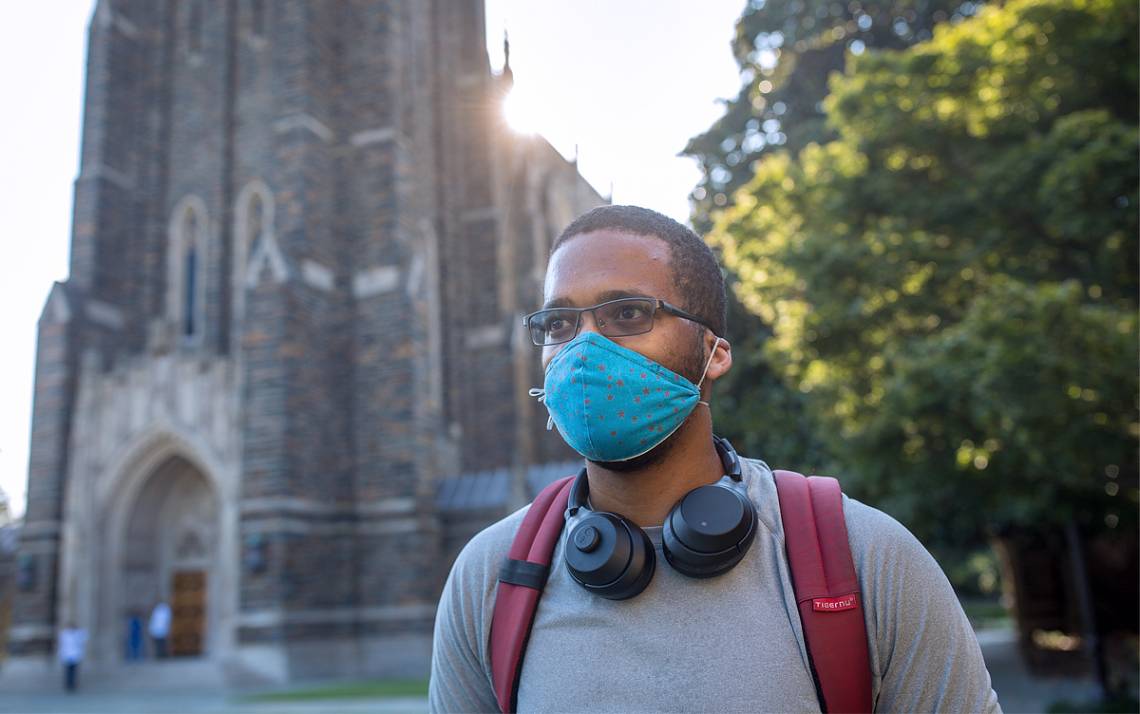Steps to Limit the Increasing Spread of COVID-19 this Fall
With a resurgence of COVID-19 in North Carolina, the Duke community is urged to follow safety practices to help stop the spread

There is a concerning resurgence of COVID-19 in North Carolina, Durham and within the Duke community over the past few weeks, mirroring national trends. With the approach of colder weather and a time of year when people traditionally gather in indoors, Duke asks for your continued vigilance in observing safety protocols to protect the health of your family, friends and Duke colleagues.
Guidelines for Social Gatherings and Holiday Celebrations at Duke
In normal times we often come together as teams to celebrate the holiday season and our collective successes. This year will feel different for sure, and there is still much to celebrate, but we need to observe some common-sense practices to ensure that we can continue our education and research missions. As such, please note that the following guidelines will be in force for the remainder of the year:
- Duke does not endorse any work-sponsored holiday or social gatherings or parties.
- Potlucks are not allowed.
- If purchasing food items for team members, food should be individually packaged for team members to take with them and must be consumed in a designated eating area.
- Within breakrooms, maintain at least 6 feet of separation from others and face in the same direction when removing masks to eat or drink.
- Limit the number of people in the breakroom at any given time, regardless of the number of masked and unmasked individuals in the room.
- Perform hand hygiene before and after mask removal or consumption of food and drink.
- Clean eating surfaces prior to and after consuming food and drink.
The North Carolina Department of Health and Human Services issued a helpful guide of low, medium and high risk seasonal activities. You can also find additional tips for holiday celebrations on the Centers for Disease Control and Prevention website.
Tips for Safety Outside of Work
The majority of faculty and staff at Duke who have tested positive for COVID-19 contracted the virus from community spread and not from any on-campus activities. Given these risks, we strongly encourage you to follow these guidelines:
Travel
- Traveling increases your risk of being exposed to COVID-19 because you often mix with individuals outside of your immediate family during travel and at your final destination.
- Car travel may be less risky for exposure than air travel, since you will have more control over those around you and your immediate environment.
- Wear personal protective equipment (e.g., facemask, eye protection) during travel.
- Establish expectations for social distancing and mask-wearing with those who will be at your final destination before your travel. It is easier to have conversations and establish common understanding prior to the visit than to change behavior during the visit.
Religious gatherings
- Understand and observe safety protocols at your place of worship.
- Social distance with those outside immediate family (including extended family).
- Community encounters with individuals outside of your immediate family are opportunities for COVID-19 transmission.
- Establish mutual expectations for masking and social distancing before community gatherings.
Masking
- Wear your mask while in indoor spaces and outdoors when social distancing cannot be maintained.
Hand hygiene
- Wash hands frequently with soap and water or alcohol sanitizer, including before/after eating.
- Avoid touching face, eyes, nose, and mouth with unclean hands, as these are opportunities for transmission.
Please share these safety protocols and guidelines with your colleagues to help ensure the Duke community is doing its part to promote the health and safety of co-workers, the local community and friends and families.